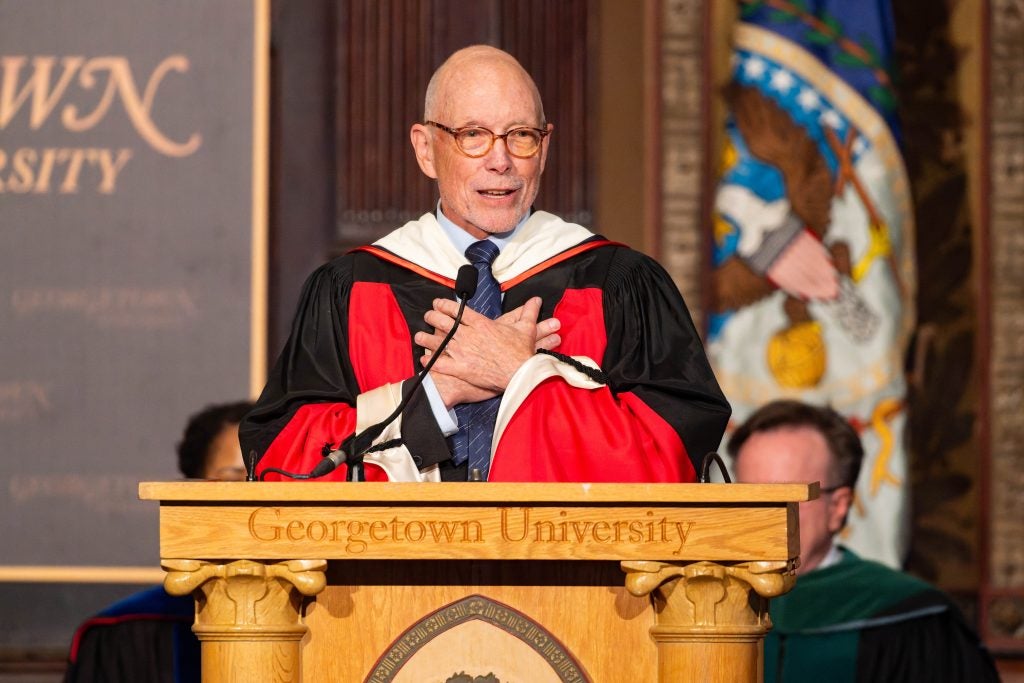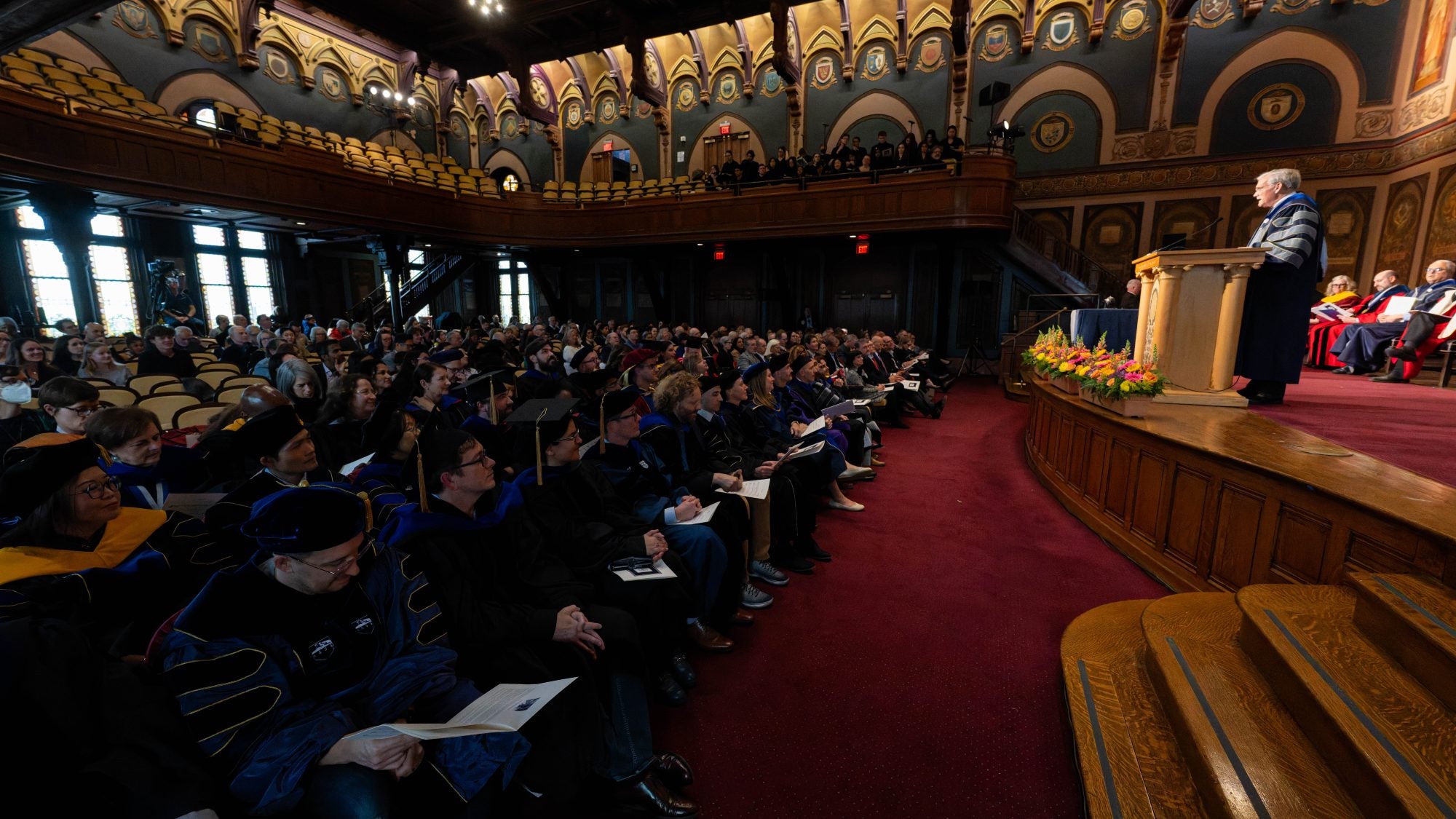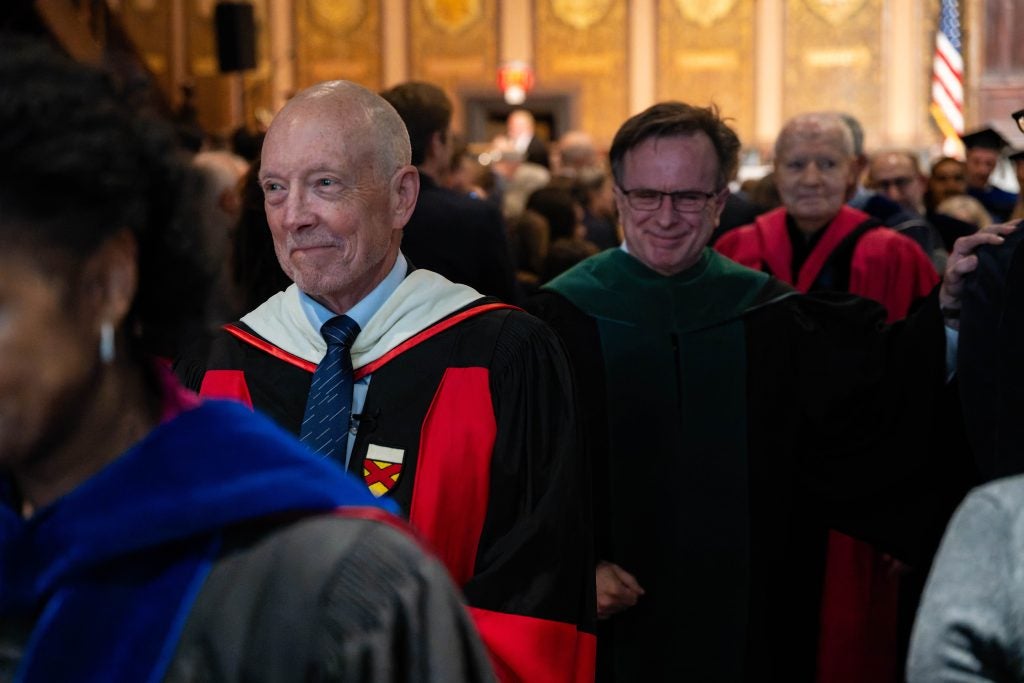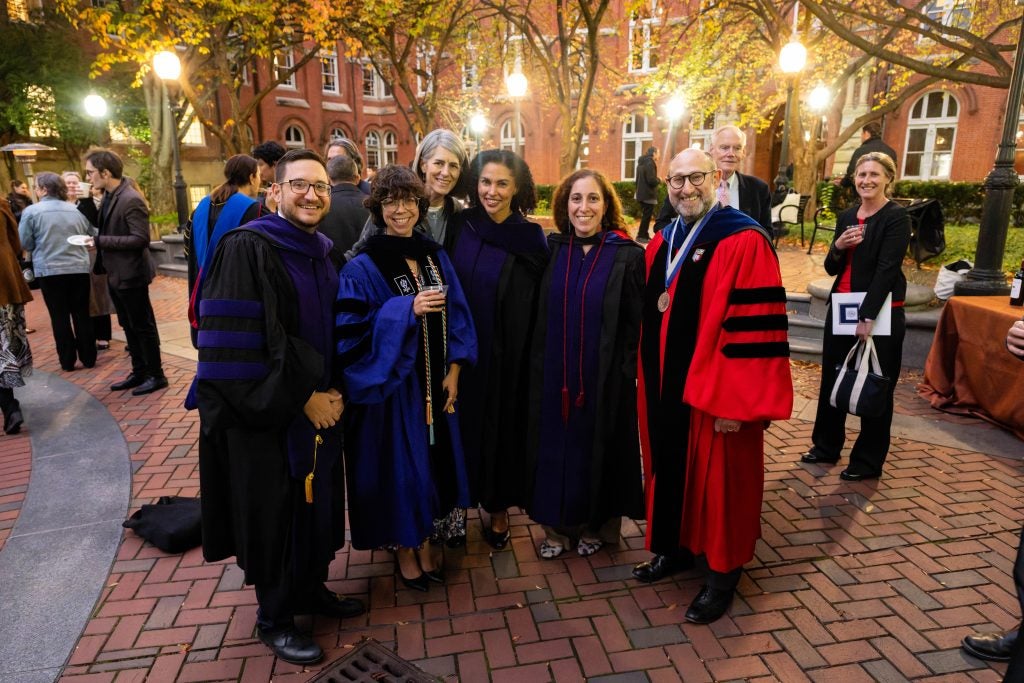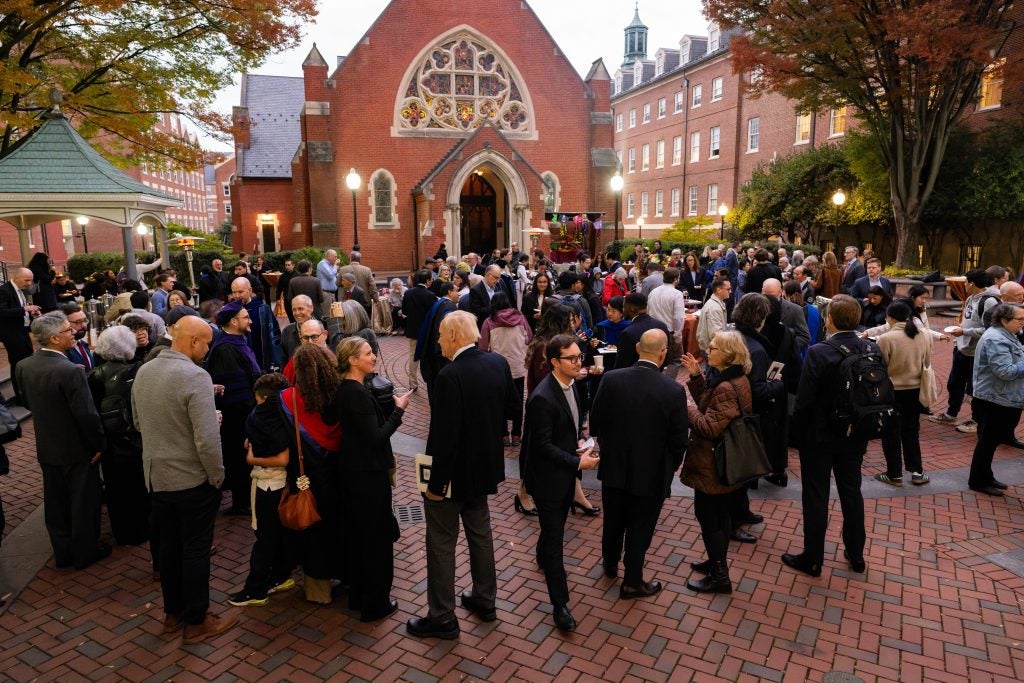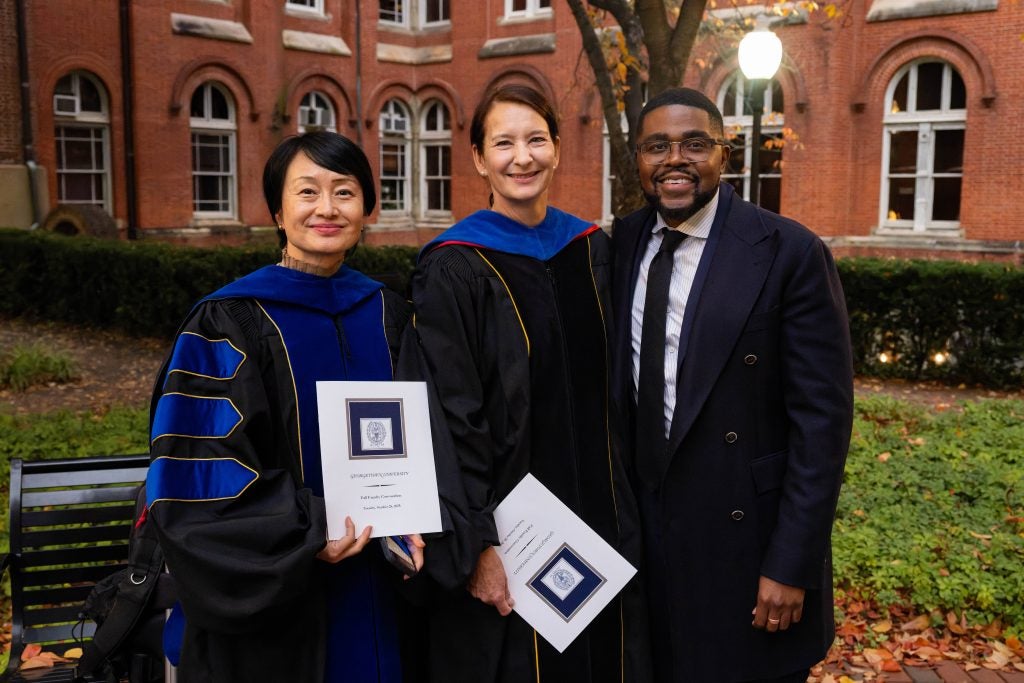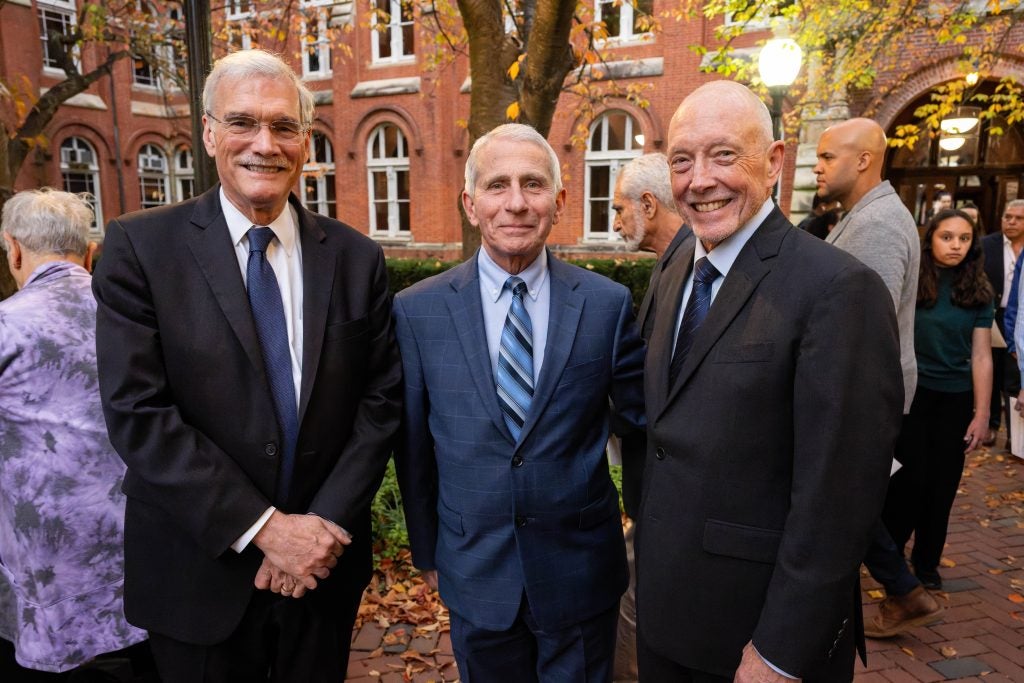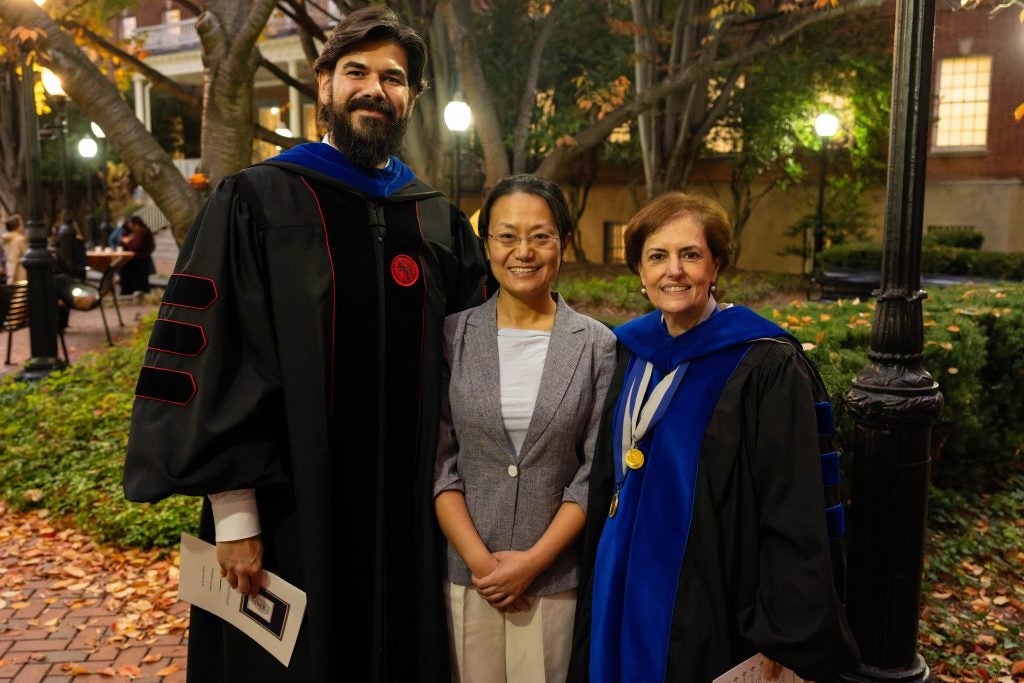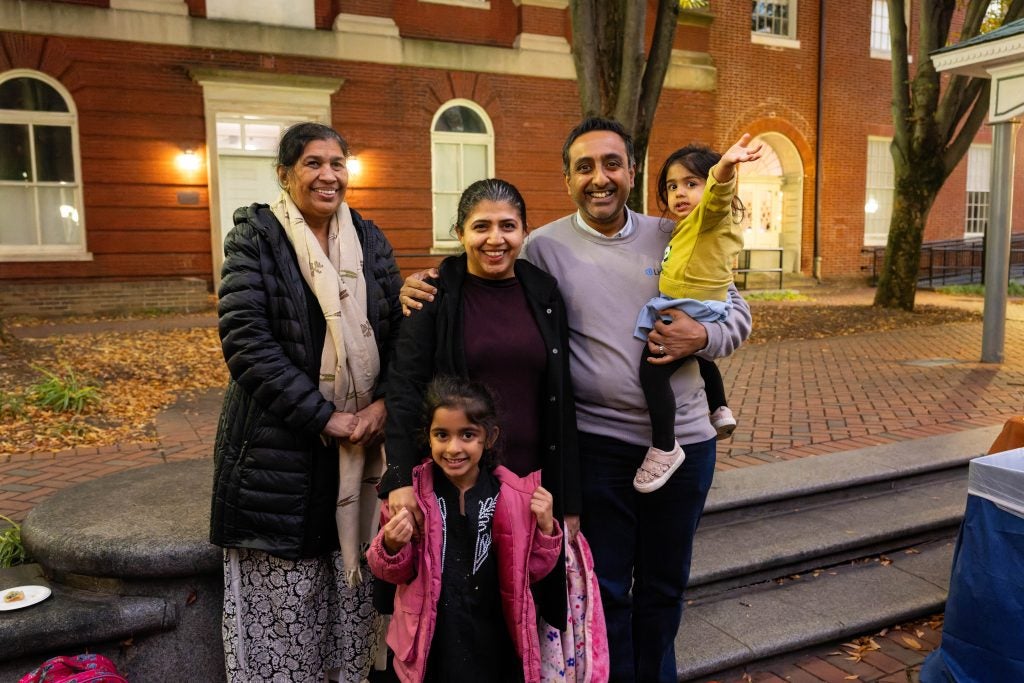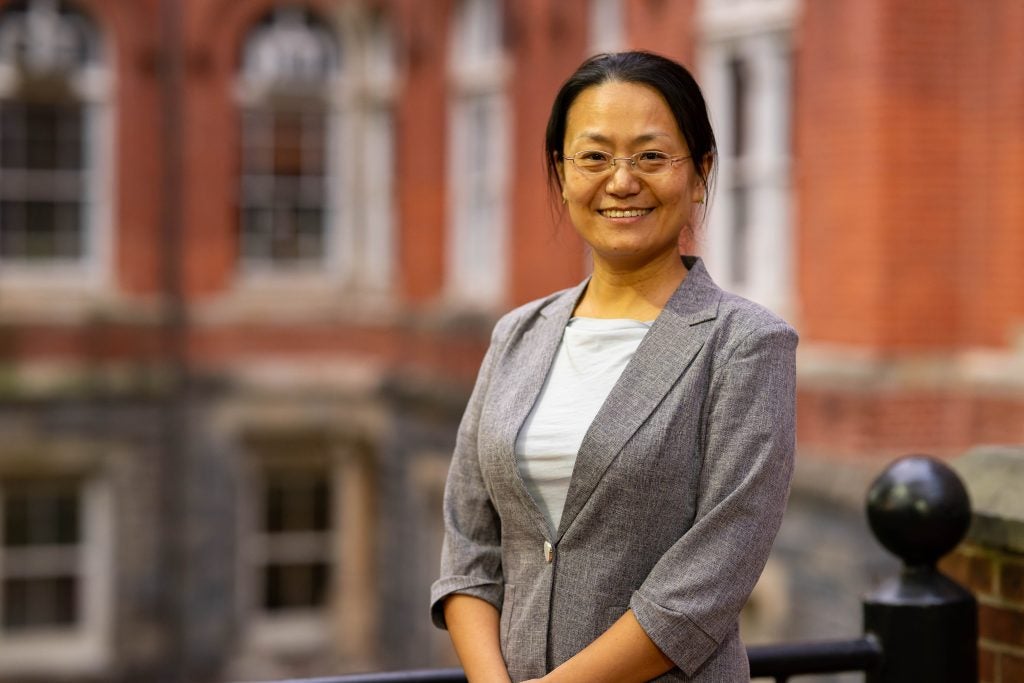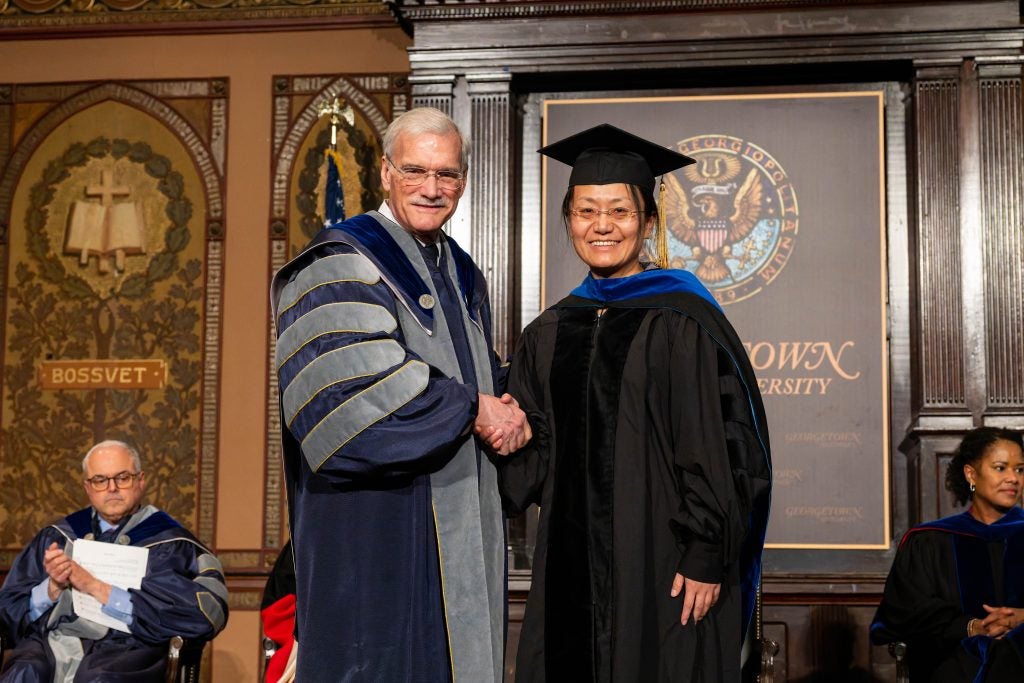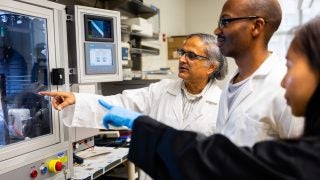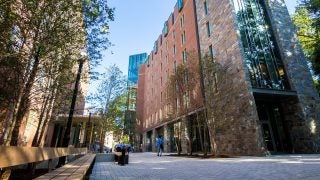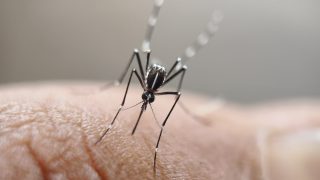On Oct. 28, Muthu Venkitasubramaniam processed through Gaston Hall alongside other newly promoted faculty.
In his arms he carried his 2-year-old daughter with a big smile on his face.
The computer scientist had just been promoted to the rank of professor for his work advancing the field of cryptography, a cybersecurity practice that encrypts and protects data. He also had just picked up his daughter from Hoya Kids Learning Center.
“I was feeling a bit overwhelmed with emotion, but having her in my arms brought a sense of calm and joy,” he said. “Walking across the stage with her made the moment even more meaningful and unforgettable.”
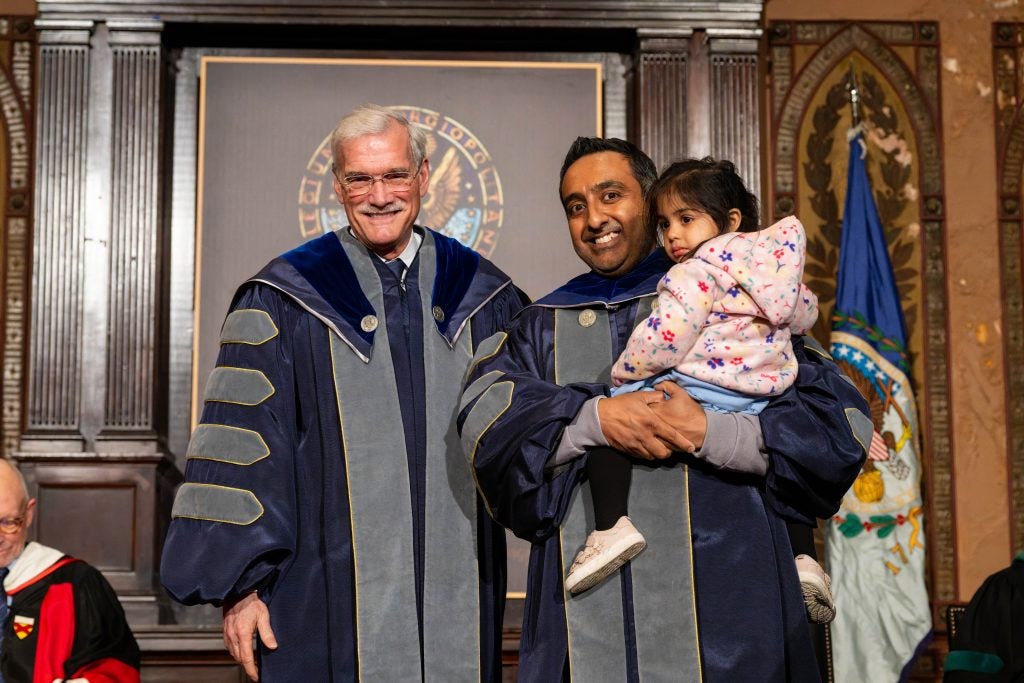
Professor Venkitasubramaniam was part of 80 newly promoted and tenured faculty who were celebrated at Georgetown’s annual fall convocation.
“Faculty are really the beating heart of the university,” Interim President Robert M. Groves said at the ceremony. “It is they who push the frontiers of human understanding. And they who lead the formation of the young people who come to us to learn and invest in their own futures. … These promotions that we honor today are the result of years of hard work and persistence. We know more about our world because of you … And I want to thank you in my current role for what you’ve done to make this university a better place. Thank you so much.”
As part of the ceremony, Ted Mitchell, the president of the American Council on Education and former under secretary of education, presented the Aims of Education address. The annual lecture on higher education has previously included speakers like Teresa Sullivan, president emerita of the University of Virginia; Barbara Snyder, president of the Association of American Universities; and Carla Hayden, librarian of Congress.
“[Georgetown] is a true beacon for teaching and for research and service to the nation and to the world,” he said. “We have relied on Georgetown for the work you have done in teaching and scholarship but also for the resource you have become over the years to policymakers and practitioners here and across the globe.”
“You’re essential to what makes Georgetown Georgetown,” Mitchell said to the faculty gathered there. “It’s together in the collective act of scholarship that you shape Georgetown students and Georgetown itself.”
